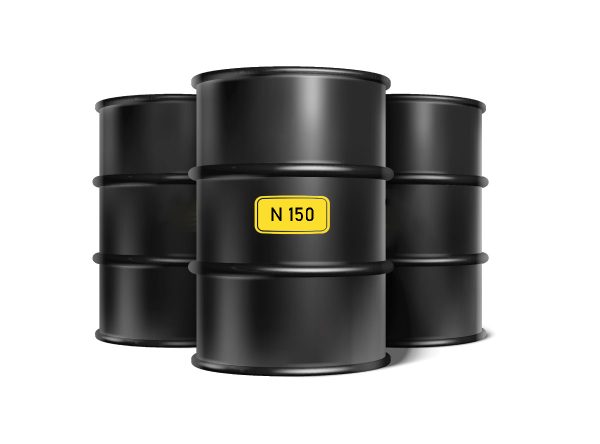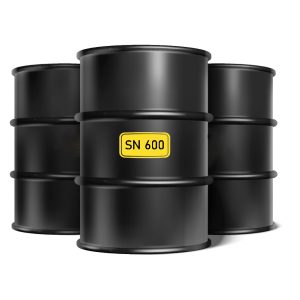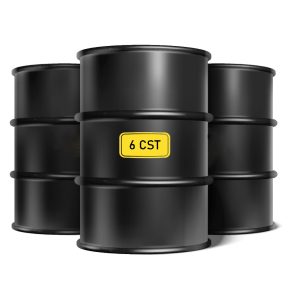Buy Base oil N150
Base oil n150 is a sample of group 2 base oil. Its viscosity index and antioxidant properties have made it attract the attention of engineers and specialists. In the following, we will talk more about its properties and functions to get to know you better.
The needs of larger industries have always been the driving force and innovation of the petrochemical industry. The production of a product requires the cooperation of different industries. With the progress of science, simple and old devices gave way to complex and new devices. It seems logical that the smaller devices did limited work and its components required less lubrication; But more complex devices do more work and need continuous lubrication for better operation and longer life.
Since Group 1 base oils did not meet the needs of larger industries, base oil Group 2 were born and expanded over time.
What is base oil n150?
Base oil n150 is considered a group 2 base oil that is obtained during the hydrocracking process. This product is mostly used for lubrication of power transmission components and making solution for machining devices. Employers’ request for increased efficiency and technological advancement, such as achieving the hydrocracking process, caused the use of group 1 base oils to decrease and engineers were pushed to use group 2 base oils. Of course, the cost-effectiveness of Group 2 oils, along with the high expectations of standard experts from lubricating oils, did have an impact on the production of these products.
Specifications of base oil n150
Base Oil N150 is a light neutral oil classified under API Group I base oils. It is produced through solvent refining processes and is known for its excellent solvency and good performance in a range of lubrication applications.
Base Oil N150 features a moderate viscosity that makes it ideal for formulating lubricants requiring good flow characteristics and thermal stability. The viscosity index ensures stable performance across a reasonable temperature range, while the low pour point supports operations in mildly cold environments.
As a Group I oil, it contains higher levels of unsaturated hydrocarbons compared to Group II and III oils, which enhances its additive solubility—a key advantage in many formulations. However, this also means slightly lower oxidation stability.
Black Water Petrochemical ensures that every batch of Base Oil N150 meets stringent quality and consistency standards, supporting global clients with a reliable and specification-driven product.
In general, group 2 base oils have certain characteristics and are defined in a variable range. The specifications of base oil n150 are:
- Density at 15 degrees Celsius: 865 kg/m3
- Viscosity at 40 degrees Celsius: between 29 and 35 mm2/s
- Viscosity at 100 degrees Celsius: 5 and a half square millimeters per second
- Viscosity index: 110 units
- Sulfur level: less than 0.01%
- pour point: -15 degrees Celsius
- Flash point: 220 degrees Celsius
- The maximum amount of water available: 0.02 percent by volume
Base Oil N150 – Specifications & Application Guide
| Property/Feature | Base Oil N150 | Base Oil SN150 | Base Oil N100 | Group II Equivalent |
|---|---|---|---|---|
| Base Oil Type | Group I / Group II | Group I | Group I / Group II | Group II |
| Viscosity @ 40°C (cSt) | ~28–32 | ~28–32 | ~90–110 | ~28–32 |
| Viscosity @ 100°C (cSt) | ~5.0–5.3 | ~5.0 | ~11.0–11.5 | ~5.1–5.3 |
| Viscosity Index (VI) | ~100–110 | ~95 | ~100–110 | 105–115 |
| Pour Point (°C) | -9 to -12 | -6 to -9 | -9 to -12 | -12 to -15 |
| Flash Point (°C) | ~220–230 | ~210 | ~230–240 | ~230+ |
| Color (ASTM D1500) | ≤ 1.5 | ≤ 1.5 | ≤ 1.5 | ≤ 1.0 |
| Applications | Automotive engine oils, industrial lubes, hydraulic oils | Blending, light lubricants | Marine, compressor oils | High-performance engine oils |
Pros and Cons of Base Oil N150
Pros:
Excellent Additive Solubility: N150’s molecular structure offers high solvency, making it ideal for blending with a wide range of performance additives.
Cost-Efficient: As a Group I base oil, it is more affordable than highly refined Group II and III oils, making it a smart choice for price-sensitive formulations.
Versatile Use: Suitable for many industrial and automotive applications due to its balanced viscosity and flow properties.
Cons:
Lower Oxidation Stability: Compared to Group II or synthetic base oils, N150 has reduced resistance to thermal and oxidative breakdown, which can limit its lifespan in high-temperature systems.
Higher Volatility: Greater evaporation loss at elevated temperatures can affect performance in some demanding applications.
Less Suitable for High-Performance Engines: It may not meet the requirements of modern, low-emission engine designs requiring superior base stocks.
Despite these trade-offs, N150 remains a trusted choice for a broad range of lubrication needs.

Usage of Base Oil N150
Base Oil N150 is widely used as a foundational ingredient in the formulation of various lubricants and specialty oils. Thanks to its balanced viscosity and excellent solvency, it is a versatile choice across several industrial and automotive sectors.
Automotive & Industrial Lubricants
N150 is commonly used in the blending of engine oils, gear oils, and transmission fluids, especially in formulations where high additive compatibility is required. It also plays a key role in hydraulic fluids, industrial greases, and compressor oils, providing reliable performance under moderate operating conditions.
Process & Functional Oils
Due to its good solvency and thermal properties, N150 is used as a process oil in the manufacturing of rubber, plastics, and elastomers. It is also employed in the production of transformer oils and insulating fluids, where moderate electrical and thermal stability is sufficient.
Why Buyers Choose N150
- Easy to blend with additives
- Cost-effective for bulk formulations
- Compatible with Group I base oil systems
- Readily available in global markets
Black Water Petrochemical supplies Base Oil N150 with guaranteed quality and consistency, meeting the diverse needs of manufacturers and blenders worldwide.
Applications of base oil n150
According to its characteristics, this oil has different uses in different industries. Some of these applications in industries can be described in the following areas:
1- Base fluid for making lubricants
By combining this oil with additives, various types of lubricants with secondary characteristics can be created. Usually, to make a lubricant, between 5 and 20% additives are added to this oil. The characteristics of this oil make it less necessary to add additives. base oil n150 is used in making engine oil for gasoline cars and lubricating waxes.
2- Hydraulic oils
The function of hydraulic oils is power transmission. Power transmission by means of gears and shafts has a high cost; Especially that you need to repair gearboxes and pistons after a certain period of time. In cases where we need high torque or want to transfer power to a relatively long distance without power loss, the hydraulic system is the best option. By using group 2 base oils, you can create fluids whose physical characteristics remain constant in many uses.
3- Engine and gearbox oil
The components of gasoline engines and the gears inside the gearbox need lubrication. In fact, the factor that prevents the shaft from locking and breaking the is engine oil. The right engine oil maintains its viscosity at high temperature and cools the parts by transferring the temperature. Also, the engine oil must be saturated so that it does not react with the surfaces during lubrication and protects the surfaces against friction and corrosion.
4- maintenance oils
These oils, which are also known as protective oils, protect external surfaces such as wooden tables, car dashboards, and car door wires. Every day, many people may touch the surface of the table, which causes the loss of the polish of the table and benches. Your car may stay under the sun for a long time during the day; Direct sunlight destroys the color of the dashboard and causes swelling on the surface of the dashboard. Using a protective oil can prevent heavy financial losses.
5- anti-adhesive oils
The production and use of these oils have recently become common among building manufacturers. These oils make the concrete mix evenly and not accumulate in one part during injection. They use this oil for cement and concrete work.
6- Fluid production for machining
Machines such as cnc cutting device, three-system machine and laser cutting are machines that can be used to shape metal parts. When forming parts, a lot of heat and friction is produced; The duty of the machining fluid is to reduce the heat and friction between the machine and the part. This fluid was composed of various materials that are usually made on the basis of water. Base oil n150 is one of the oils used in making this fluid.
The price of base oil is n150
Supply and demand determines the price of goods. Base oil has different prices in world markets. The manufacturing plant, the quality of the product, the shipping method, etc. are effective in the pricing of this product. The current price of this product is influenced by various variables. You can contact our experts to know the current price.
final word
N150 base oil product is one of the best products produced by Blackwater company. By hiring specialized and efficient workers, we have the ability to produce products desired by employers needs. Considering the price and quality of the products, this company has the ability to compete with other factories and petrochemicals. Our important competitive advantage over others is providing after-sales services and sending cargo to anywhere in the world with different shipping methods; In fact, you can choose the appropriate shipping method and receive your cargo. We hope that we have been able to explain base oil n150 well to you, the audience.
Frequently Asked Questions – Base Oil N150
- What is Base Oil N150?
Base Oil N150 is a Group II medium-viscosity oil, offering excellent thermal and oxidation stability, suitable for high-performance lubricants. - What are the applications of N150?
Commonly used in engine oils, ATF, hydraulic systems, and gear oils. - What is the viscosity index of N150?
Typically ≥ 105–120, making it suitable for a wide temperature range. - Is N150 compatible with synthetic oils?
Yes, N150 can be blended with Group III and PAO base oils in synthetic or semi-synthetic formulations.






Reviews
There are no reviews yet.